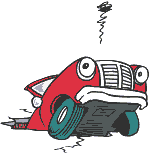... Dallas, Texas
... Waltham, Massachusetts
... Atlanta, Georgia
... Henderson, Nevada
... Oklahoma City, OK
... Los Angeles, California
... Batesville, IN
... Abingdon, Virginia
... Joondanna, Washington
... Olympia, Washington
... Buffalo, New York
... South Yarmouth, Massachusetts
... Eureka, Montana
... Des Moines, Iowa
... Nikiski, Alaska
... Independence, Missouri
... Olympia, Washington
... Chattanooga, Tennessee
... Decatur, Alabama
... Seattle, Washington
... Los Angeles, California
... Bend, Oregon
... Cumberland, Wisconsin
... Tampa, Florida
... Palo Alto, California
... Miami, Florida
... Albany, Georgia
... El Paso, Texas
... Wilson, Wyoming
... Orlando, Florida
... Madison, Wisconsin
... Charlotte, North Carolina
... Roswell, Georgia
... Alta Loma, California
... Staughton, Massachussets
... Bend, Oregon
... Guymon, Oklahoma
... Richmond, California
... Bruce Crossing, Michigan
... Mundelein, Illinois
... Reno, Nevada
... Springville, New York
... Tampa, Florida
... West Jordan, Utah
... Kissimmee, Florida
... Chicago, Illinois
... St. Louis, Missouri
... Wallingford, Connecticutt
... Los Angeles, California
... Arvada, Colorado
... Norman, Oklahoma
... Reno, Nevada
... Phenix City, Alabama
... Jacksonville, Florida
... Huntersville, North Carolina
... Pahrump, Nevada
... Columbus, Ohio
... Utica, New York
... Cheyenne, Wyoming
... Coronado, California
... Sacramento, California
... Kanab, Utah
... Augusta, Georgia
... Newark, Delaware
... Harpersfield, New York
... Los Angeles, California
... Omaha, Nebraska
... Los Angeles, California
... Arlington, Washington
... Crawfordsville, Indiana
... Jacksonville, Florida
... Tucker, Georgia
... Knoxville, Tennessee
... Los Gatos, California
... Cincinnati, Ohio
... Great Barrington, Massachussets
... Brooklyn, New York
... Chicago, Illinois
... Pahrump, Nevada
... The Dalles, Oregon
... Houston, Texas
... Palm Harbor, Florida
... North Conway, New Hampshire
... Steubenville, Ohio
... Miami, Florida
... Beltsville, Maryland
... Belfast, Maine
... Pasadena, Maryland
... Stockton, California
Circumstantial Evidence

Know How to Protect Yourself
Eliminate Guesswork!
Circumstantial "evidence" is NOT EVIDENCE ! ! !
Never forget this!
Circumstantial evidence is a reach, a guess, a supposition.
It is not fact!
It is not evidence!
It is an attempt to "prove" something without evidence!
It "supposes" stuff instead of "proving" it!
It confuses judges and juries who aren't paying attention!
It will bury you in court if you allow it to be abused.
And, it is abused on a regular basis by unscrupulous civil lawyers and zealous criminal prosecutors anxious to "prove" their cases when they have no real evidence, no "clear facts" to present in court as genuine evidence, nothing directly in support of their positions.
They try to win by going "around the bush" so to speak, taking an indirect approach, coming at it by the back door if they can.
Judges routinely allow it to be abused ... contrary to the rules!
You must know the rules.
And you must use the rules to prevent the abuse!
This class shows how.
Class Includes:
- What circumstantial evidence is not.
- What circumstantial evidence is.
- The history of circumstantial evidence.
- What it smells like.
- A real case
- How it is used.
- How it is abused.
- Why it is dangerous!
- What the rules say about it.
- What to do when your opponent tries to use it.
- How to clear the court record.
- How to prepare for appeal if you lose because of it.
- Conclusion
- Quiz

